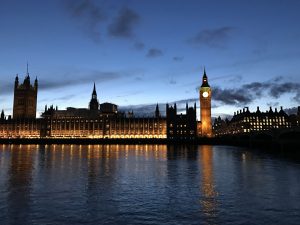3 Predictions for the 2020 Budget
What is The Budget?
The Budget, also known as the Financial Statement, is an annual event in which the government lays out their financial plans. This year’s Budget was originally planned for 11th March, but given Sajid Javid’s recent resignation and the appointment of Rishi Sunak as new chancellor, the Budget could be delayed. Nevertheless, it is set to be quite a big one.
All eyes are on Boris Johnson and his new chancellor, the latter of which will address the House of Commons to set out the plans for government spending in the upcoming year and beyond.
The Budget will usually detail an extensive range of topics, including changes to taxation, public spending and predictions for the economy. This Budget is a first in two regards; it is both the first budget of the new government as well as the first post-Brexit budget. Given this fact, the 2020 Budget is one to watch.
Cave & Sons have put together some predictions that we believe could impact our readers.
Help For First-Time Buyers
There are several government schemes available to aid the purchase of property, especially when it comes to first time buyers. Previous implementations have included Help to Buy ISAs and Lifetime ISAs, which have helped new buyers get onto the property ladder.
The conservatives have pledged to continue this trend, promising to ensure certain homes will have a discount for first time buyers. Similar schemes currently exist for new builds, but many are predicting discounts of up to 30% for first time buyers on particular properties.
The specific details of this announcement remain to be seen, but if you are planning on purchasing your first house in the coming years, it is certainly worth keeping track of.
National Insurance
The chancellor is expected to announce a raise to the starting threshold for National Insurance Contributions (NICs). The current starting threshold is £8632, and it is projected to rise to £9500, or possibly even higher.
Naturally, this change will benefit the lowest earners most, with those earning low to middling salaries potentially saving around £100 per year. Some have warned that under current legislation, raising the threshold could negatively impact the lowest earners during later life as earners do not qualify for a full state pension unless they’ve made 35 years of NICs.
It’s also possible that Sunak will reaffirm the government’s pledges to increase the NIC threshold to £12500 by 2025.
Public Spending
Much of Boris Johnson’s recent campaign was centred around ‘levelling up’ Britain and promises to provide a boost to public services. There were pledges to invest in the NHS, police, education and social services.
There have already been announcements for the NHS, such as the controversial promise to recruit 50,000 new nurses and build a number of new hospitals. Similarly, there have been promises to get 20,000 more police on our streets. In education, the key pledge was to increase Pupil Premium funding; a fund provided to schools to support children from low income families.
We expect further details on these announcements, as well as other specifics focusing on public spending. Rumours surrounding a significant increase to teacher’s starting salaries have surfaced, the reality of which is not yet known.
Cave & Sons Ltd
Cave & Sons are committed to providing our readers with expert financial advice. Based in Northampton, we offer professional IFA and a range of other services. If you would like to find out more, please give us a call today on 01604621421 or fill in our contact form and we’ll be in touch as soon as possible.
Cave & Sons Ltd is authorised and regulated by the Financial Conduct Authority (FCA), Financial Services Register number 143715.
This communication is for general information only and is not intended to be individual investment advice, tax or legal advice. The views expressed in this article are those of Cave & Sons and should not be considered as advice or a recommendation to buy, sell or hold a particular investment or product. You are recommended to seek professional regulated advice before taking any action. Tax and Estate Planning Services are not regulated by the Financial Conduct Authority

